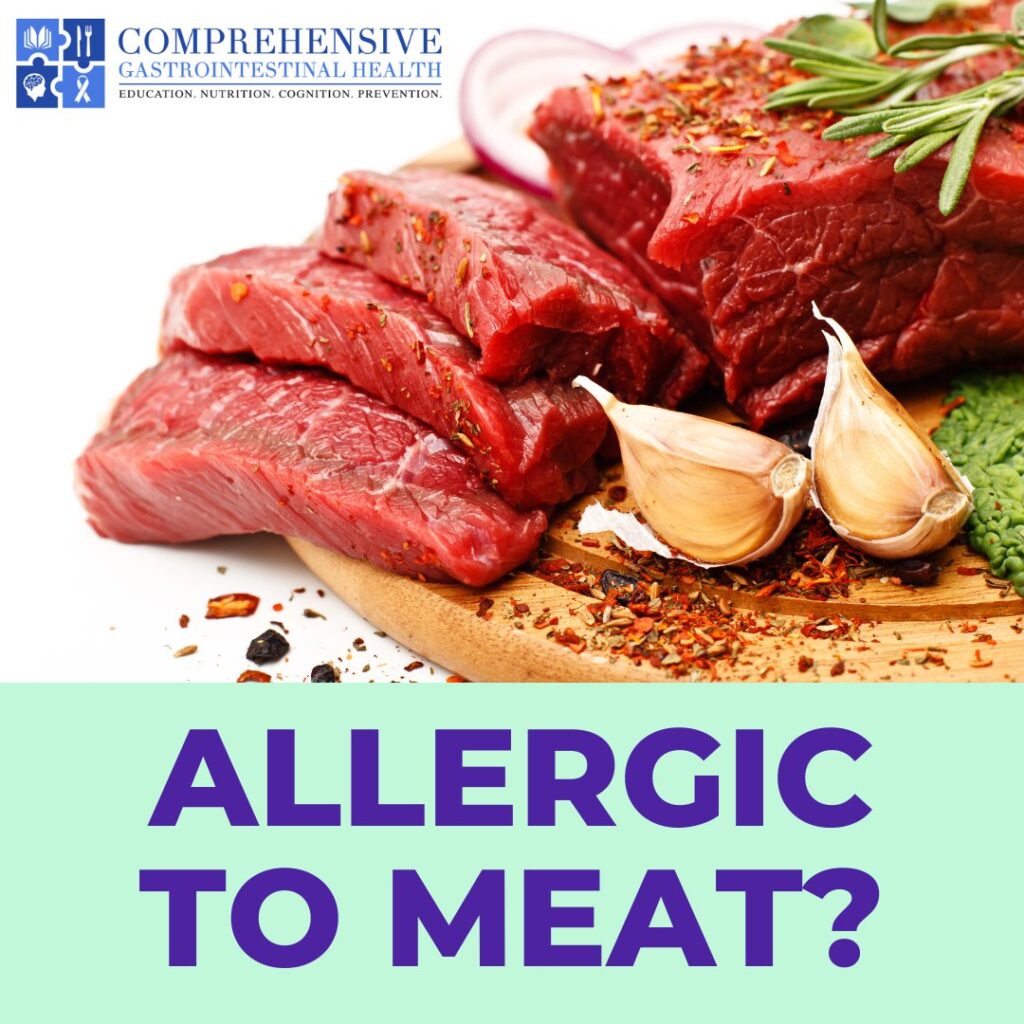No Meat, Please!

The Alpha-gal allergy is an emerging clinical syndrome that was first noted in the 2000s. Common symptoms include hives, GI distress and possibly anaphylaxis hours after ingestion of pork, beef or other meat-based foods. While data is still emerging on the alpha-gal allergy, here is the current knowledge on this syndrome.
Transmission:
The Lone Star Tick, which is implicated in the alpha gal sensitization/allergy, is common in the Midwest and Southeastern parts of the United States. All mammals, aside from certain primates, carry the alpha gal carbohydrate antigen.
When a tick bite occurs, it injects alpha-gal and other molecules that creates an immune response. This leads to hypersensitization to ingestion of mammalian products such as meat.
Symptoms:
Abdominal pain, nausea, vomiting, and diarrhea within 1-8 hours after eating meat with alpha-gal carbohydrate.
Diagnosis:
Serum alpha-gal immunoglobulin IgE blood test
Treatment:
Avoidance of alpha-gal in the diet which includes pork, beef, lamb, venison, organ meats and derived fats such as lard and tallow. This may also include dairy and gelatin if patients continue to have symptoms after avoiding the above. Fish, seafood, and chicken are fine to eat.
Avoidance of further tick bites by wearing boots, light pants and tick repellant.
Avoidance of medications or medical devices that may contain alpha-gal such as pancreatic enzymes, porcine patches or cardiac valves.
Is there a cure?
Patients with GI-isolated alpha-gal may eventually outgrow that allergy and intolerance to mammalian products. Alpha-gal IgE blood levels can be trended until they normalize at which point patients can challenge themselves with small servings of dairy and if tolerated, can challenge lean meats.
Do you have some GI distress that sounds similar to the above? Or any GI complaints in general? Make sure to call our office to discuss your symptoms and determine if any further testing/treatment is indicated by calling 224-407-4400. We look forward to helping you!
